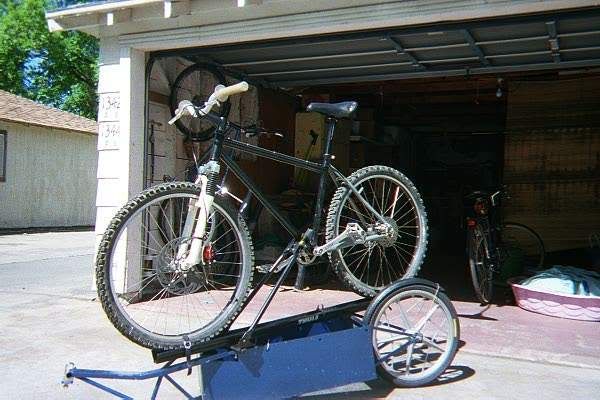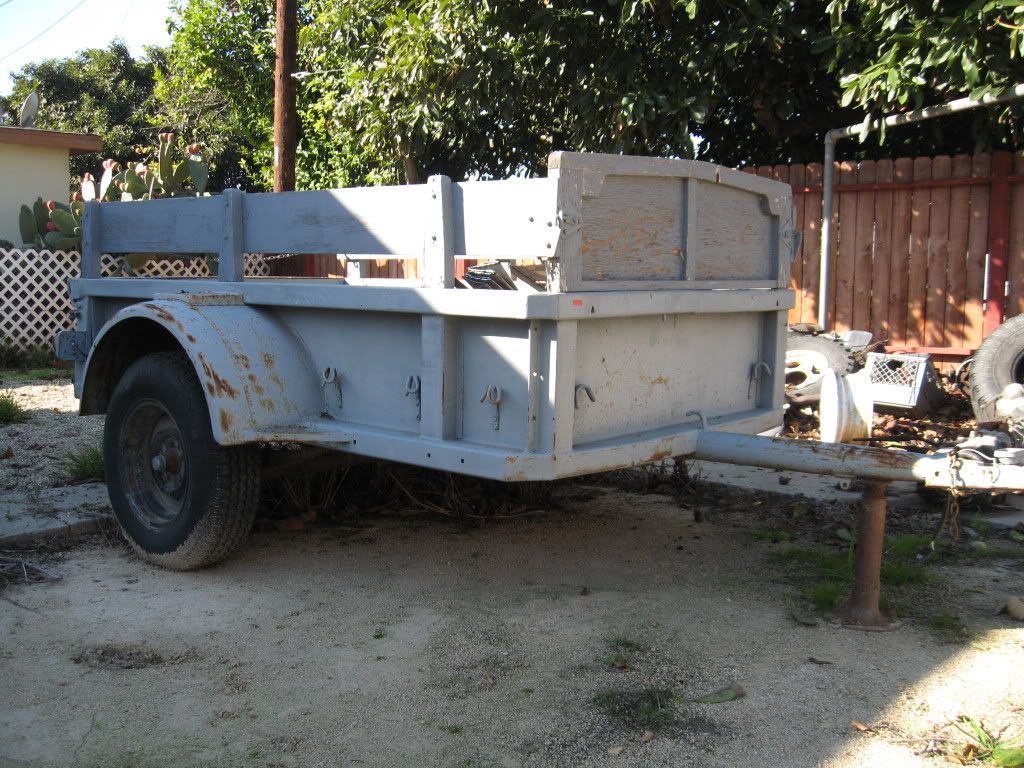R_Lefebvre
Expedition Leader
I've been thinking more and more about building a new utility trailer for myself this winter, once my big camping trailer is finished. As I've said, I like the simplicity and efficiency of this design. Now, I may have missed it but what are your box dimensions?
See, I've got this 4x8 utility trailer right now, it's been a good trailer, I'd end up selling it to buy parts for the new one. I'm just thinking I'd like something a little more rugged to be able to take on logging roads and stuff to get landscaping materials, or for lightweight camping in more rugged locations than my big trailer can go. One of the requirements to be able to replace my utility trailer is to be able to fit 4x8 sheets, somehow. I was thinking about a 4x6 box size, with the axle roughly 4 feet behind the front of the box. Then the tailgate could drop down, and that's how I'd get 8 foot sheets in. I realize the tongue weight would be heavy when the gate is up, and maybe a little low when it's down and loaded with 8 foot wood, but I think it would be an acceptable compromise? With the gate up, it would normally have light loads, so the tongue weight bias shouldn't be an issue. With the gate down and a light tongue, we'd only be talking short trips from Home Depot.
The other design requirement is to fit two dirtbikes in it. I think this could also be done with the gate down, like shortbox pick-ups do. I think with the axle biased to the back, the weight would work out fine.
The other thing I would change would be to put the sheet metal inside the frame, instead of outside, so it would work better for loads like dirt. I also wouldn't worry about a lid at all. If it was used for lightweight camping, I'd rely on waterproof bags or boxes.
Edit: I've also been teasing the idea of building it out of all aluminum. Ultra-light weight, so I'd have my two options. It would be great for lightweight camping on really tecnical terrain, but I'm just not sure how it would work out for a "working" trailer. I'm thinking, by the time I made it thick enough to be strong enough, it wouldn't actually be saving much weight? You know, I would think 14ga sheet metal would be plenty, but I'd probably use 1/16" aluminum. I have welded aluminum, but it is a little more difficult. More importantly, I'm limited to 1/8" with my welder, and I'm not sure a 1/8" aluminum frame would be strong enough?
Thoughts?
See, I've got this 4x8 utility trailer right now, it's been a good trailer, I'd end up selling it to buy parts for the new one. I'm just thinking I'd like something a little more rugged to be able to take on logging roads and stuff to get landscaping materials, or for lightweight camping in more rugged locations than my big trailer can go. One of the requirements to be able to replace my utility trailer is to be able to fit 4x8 sheets, somehow. I was thinking about a 4x6 box size, with the axle roughly 4 feet behind the front of the box. Then the tailgate could drop down, and that's how I'd get 8 foot sheets in. I realize the tongue weight would be heavy when the gate is up, and maybe a little low when it's down and loaded with 8 foot wood, but I think it would be an acceptable compromise? With the gate up, it would normally have light loads, so the tongue weight bias shouldn't be an issue. With the gate down and a light tongue, we'd only be talking short trips from Home Depot.
The other design requirement is to fit two dirtbikes in it. I think this could also be done with the gate down, like shortbox pick-ups do. I think with the axle biased to the back, the weight would work out fine.
The other thing I would change would be to put the sheet metal inside the frame, instead of outside, so it would work better for loads like dirt. I also wouldn't worry about a lid at all. If it was used for lightweight camping, I'd rely on waterproof bags or boxes.
Edit: I've also been teasing the idea of building it out of all aluminum. Ultra-light weight, so I'd have my two options. It would be great for lightweight camping on really tecnical terrain, but I'm just not sure how it would work out for a "working" trailer. I'm thinking, by the time I made it thick enough to be strong enough, it wouldn't actually be saving much weight? You know, I would think 14ga sheet metal would be plenty, but I'd probably use 1/16" aluminum. I have welded aluminum, but it is a little more difficult. More importantly, I'm limited to 1/8" with my welder, and I'm not sure a 1/8" aluminum frame would be strong enough?
Thoughts?
Last edited:



